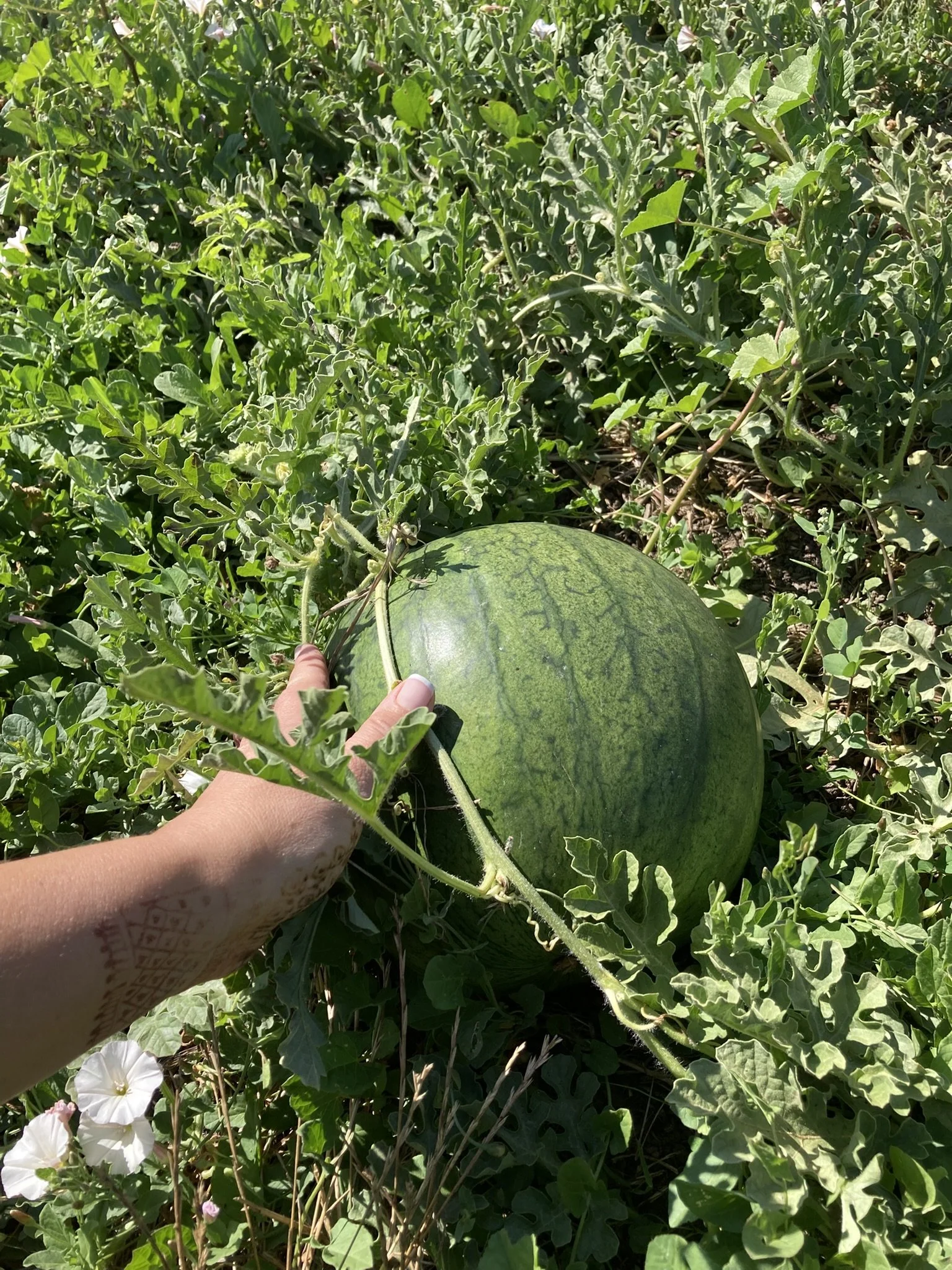Bateekh Jadu'i / Jadu`i Watermelon
بطيخ جدوعي
Citrullus lanatus
ABOUT THE PLANT
We received these seeds from the Palestine Heirloom Seed Library (PHSL) founded by Vivien Sansour. Vivien Sansour was able to bring this almost extinct Palestinian watermelon back to life, and it is now being grown in many places around the world. For more about this plant, you can visit the PHSL site (highly recommend reading more!).
PLANTING AND HARVESTING NOTES
Sow seeds indoors in early spring or direct seed after last frost in spring. In Palestine, these plants were not irrigated, though I have been growing them with irrigation (for now). Plant 3 to 5 feet apart in rows that are 6 to 8 feet apart. Watermelon plants really spread over the season.
These plants take their time growing and need about 90 days to full maturity. According to a friend, you can harvest the watermelons when they “wink” at you. When ripe and fully mature, these watermelons are juicy and very sweet!
SEED KEEPING NOTES
Allow watermelons to reach full maturity before harvesting for seed. You can leave fruits on the plant past their point of maturity so that they’re overripe too. However, it is difficult to do that because these watermelons are so tasty. Viable seed will look darker in color and have a black outline on the seed (see photo on bottom right). I have found that the best way to clean the seeds is to eat the watermelon and spit the seeds out.
Then rinse several times to make sure all of the flesh is no longer on the seed. You can put in a bucket and fill with water. The more viable seed will be heavier and will sink to the bottom, while the non viable seed will be lighter and will float to the top. Pour off the non viable seed and then strain, put on a screen or blanket to dry out of direct sunlight. Once completely dry, store in an airtight container.
RECIPES/FOOD PREP
Eat these straight from the plant once mature and be sure to share with people you love! They are the perfect fruit to eat on a hot summer day and incredibly hydrating.
There is also a recipe in Palestine to pickle watermelon rinds, so that is another way to use the whole fruit.
We also are obsessed with eating roasted watermelon seeds in Palestine, called bizr. Oftentimes with cups of fresh mint tea—it is our evening form of entertainment.


